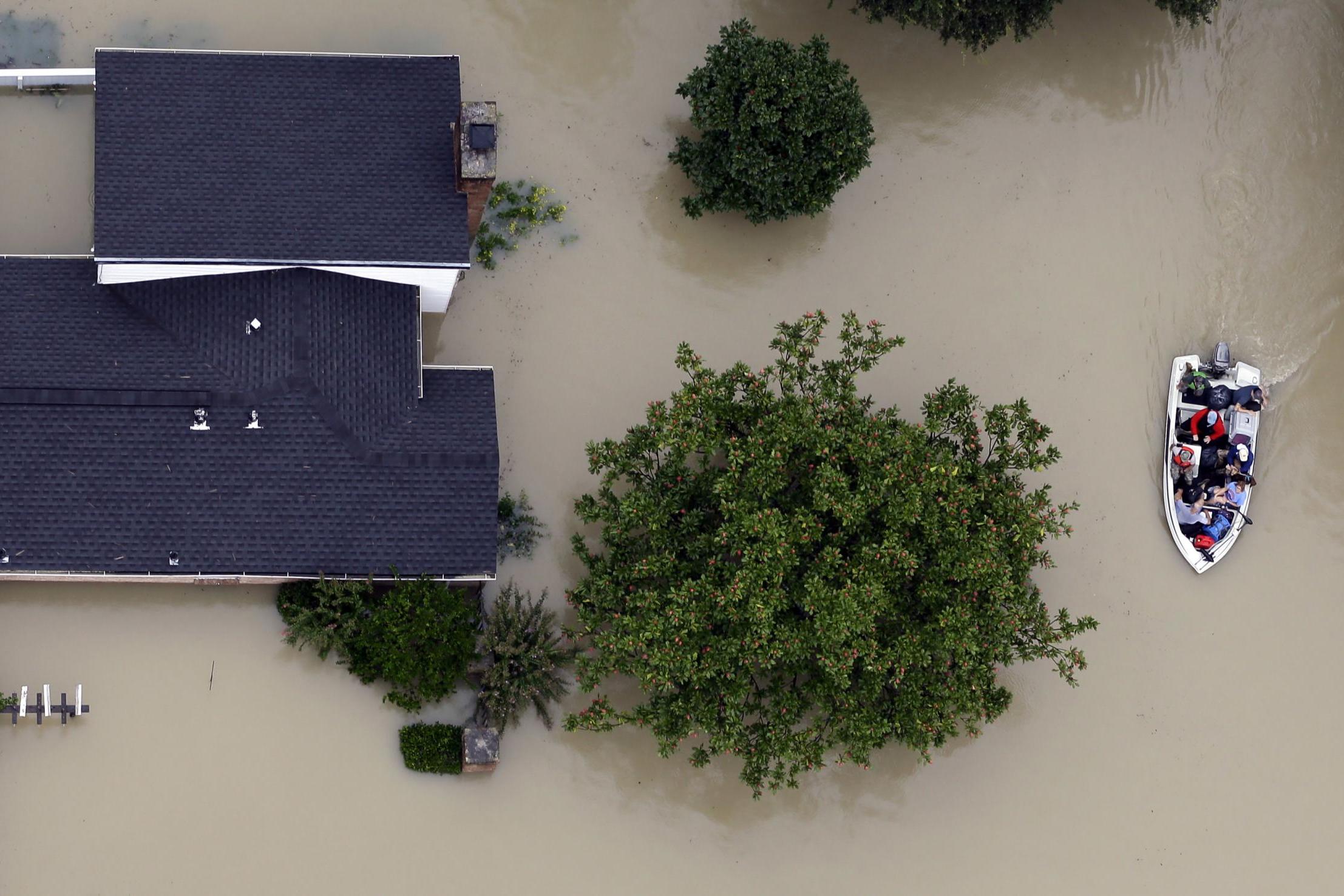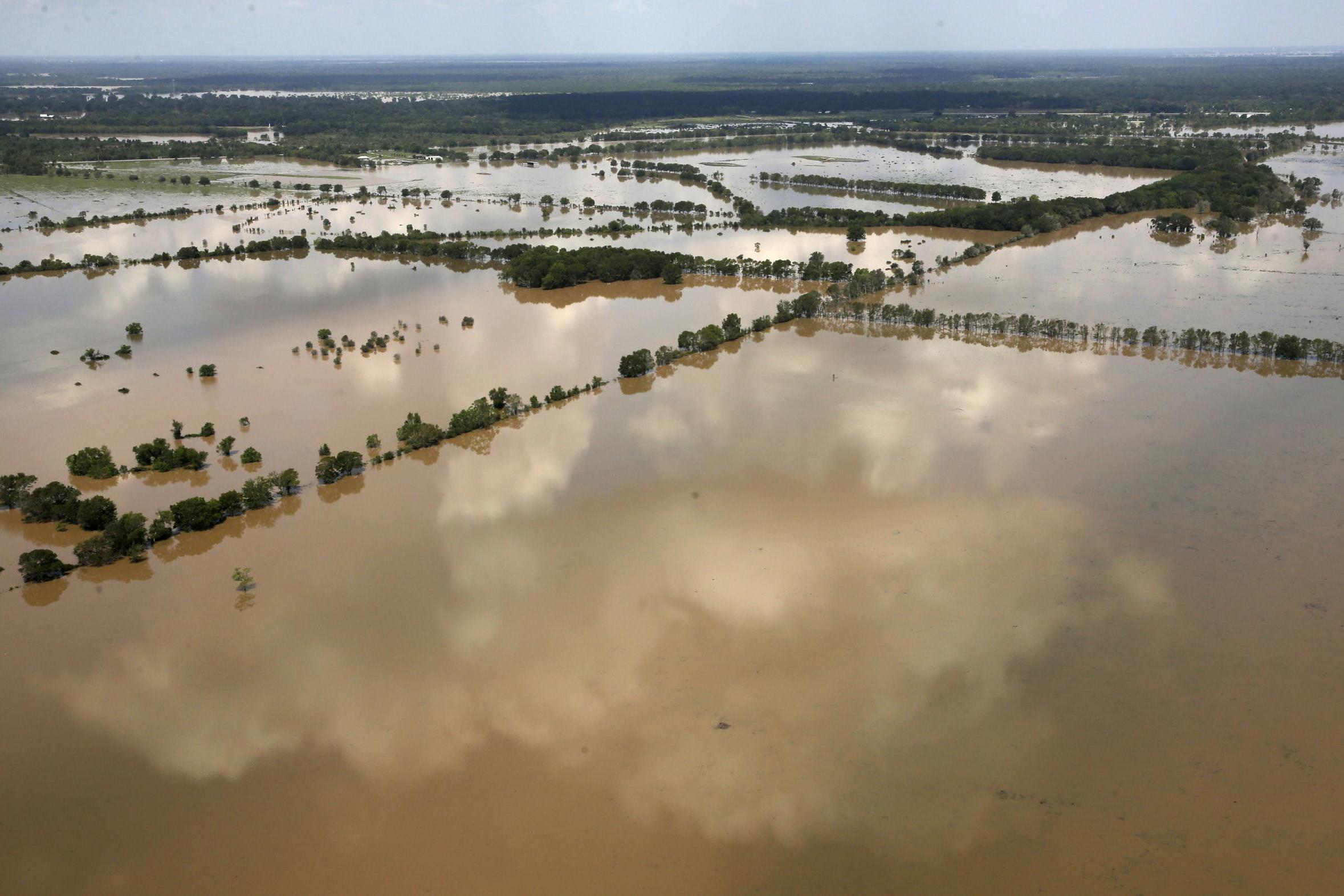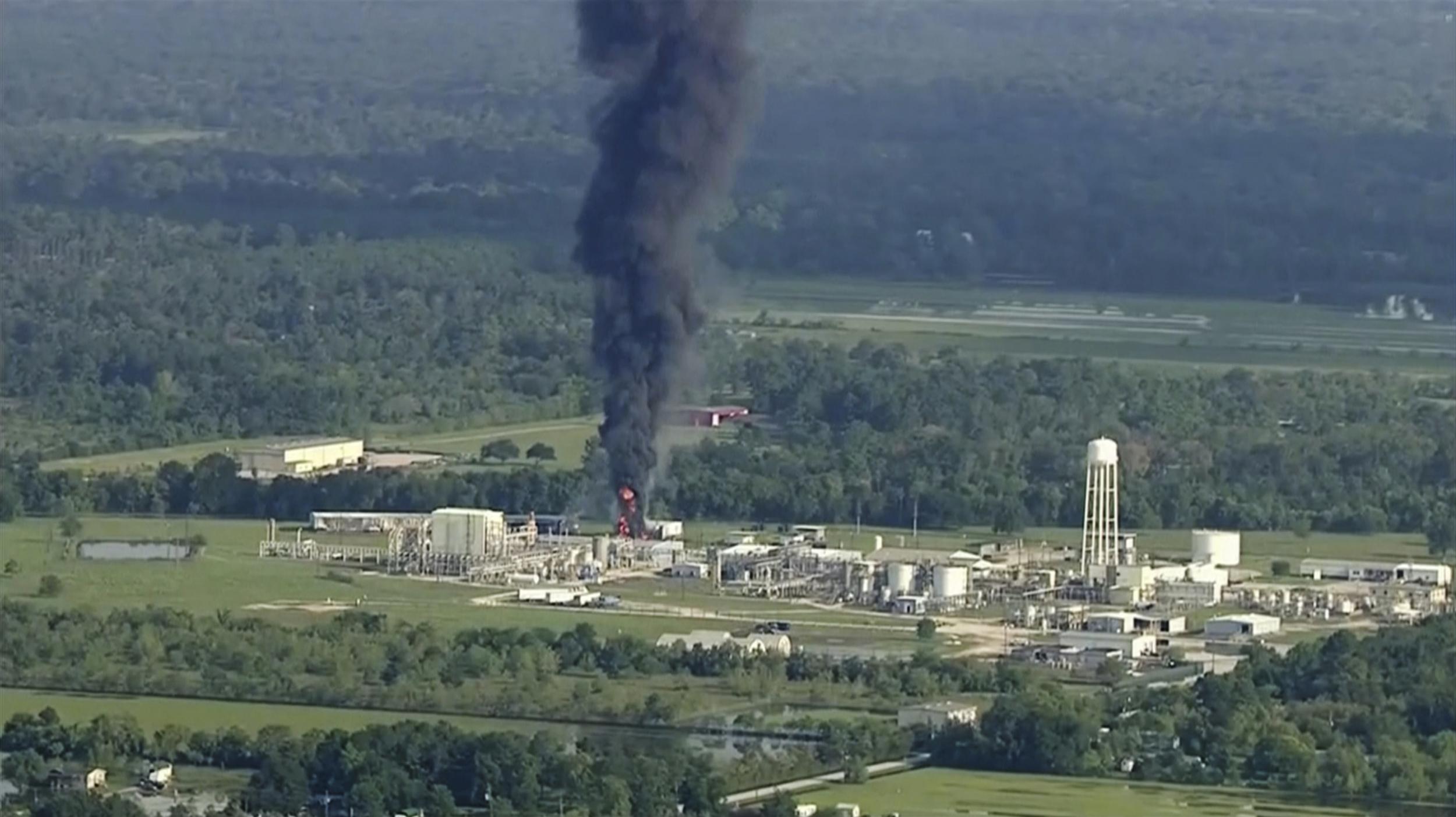Hurricane Harvey: Donald Trump asks Congress for $8bn disaster relief after floods kill dozens and displace tens of thousands in Houston
Rescuers search for survivors as Texas governor warns state could need $125bn in aid

Donald Trump has asked Congress for $7.9bn (£6.1bn) in federal disaster relief after flooding left dozens dead and more than a million displaced in Texas.
Rescuers were continuing to search for stranded survivors after one of the costliest storms to hit the US paralysed Houston and swelled river levels to record highs.
At least 50 people are feared to have been killed by Hurricane Harvey and the devastating floods left in its wake.
People queued for more than a mile for bottled water after the storm knocked out the drinking water supply in Beaumont, a city of 120,000 people.
Meanwhile, thick black smoke and towering orange flames shot up after two tanks of volatile compounds blew up on Friday at the Arkema chemical plant in north-east Houston.
The fire, the second in two days, was expected to spread to six other containers after floodwaters engulfed backup generators that had been powering refrigerators used to keep the organic peroxides from igniting.
The Trump administration's request for a $7.9bn for response and initial recovery efforts was expected to be the first of several appeals for disaster relief funding.
White House homeland security adviser Tom Bossert said funding requests would come in stages as more became known about the impact of the storm.
Texas governor Greg Abbott has said that his state alone may need more than $125bn in aid.

Mr Trump was planning to make a second visit to the region on Saturday, having been criticised for failing to speak to victims during a trip to Corpus Christi, Texas, on Tuesday. The President will travel to Houston and Lake Charles, Louisiana, to survey the damage and meet residents and volunteers.
Although water levels had fallen in many areas of Houston on Friday, the mayor Sylvester Turner called for voluntary evacuations on the city's west side.
He said already flooded neighbourhoods may be in greater danger as the Army Corps of Engineers continues to release water into the adjacent Buffalo Bayou to prevent dam and levee failures.
Much of the damage caused by Harvey, which slammed into the US Gulf Coast as a category 4 storm on Friday last week, has been inflicted on Houston.
Seventy percent of Harris County, which encompasses the city, was one point was covered with 18 inches (45 cm) or more of water. An estimated 156,000 houses in Harris County, more than a tenth of all structures in the area, have been damaged by flooding.
Some of the flooded houses have several feet of water in them while others are submerged up to their rooftops.
A list of the dead put out by Harris County officials painted a grim picture of the storm's brutality, describing bodies found floating face down in floodwaters, lying in ditches or across fences. Many were unidentified but funerals have begun to be held for some of the mounting toll of victims.
About 80 miles (130 km) to the east of Houston, the Neches river, which flows into Beaumont and nearby Port Arthur, remained at record levels this weekend.
"There still remain areas that are deadly dangerous," Mr Abbott told reporters. "The Neches river continues to rise. It is about 7ft [2.1m] above the record and it will continue to remain at or be near that high for about the next week. This flooding poses an ongoing threat."
Beaumont's water system failed on Thursday after it was deluged by the river and back-up pumps failed. About 1,000 people who had been sheltering the city's civic centre were flown 300 miles (480km) to Dallas, while Beaumont authorities handed out bottled water near the Babe Zaharias Memorial Stadium throughout Friday.
Harvey has shut about a fourth of US refinery capacity, much of which is clustered along the Gulf Coast, and caused petrol prices to spike to a two-year high ahead of the long Labour Day holiday weekend.
The national average for a gallon of regular petrol has risen 17 cents since the storm hit, hitting $2.519 as of Friday morning, according to motorists group AAA.
Supply concerns prompted the US Energy Department to authorise the release of up to 4.5 million barrels of oil from the Strategic Petroleum Reserve.

Several east coast refineries have run out of fuel, raising fears that motorists will face fuel shortages during the three-day holiday.
In major Texas cities including Dallas, there were long lines at gas stations. Mr Abbott said the state was taking steps to ensure adequate supplies, adding, "Don't worry. We will not run out of gasoline."
Some 440,000 Texans have already applied for federal financial disaster assistance, and some $79 million (£61 million) has been approved so far, Mr Abbott said.
Moody's Analytics estimated the economic cost from Harvey for southeastern Texas at $51 billion (£39 million) to $75 billion (£58 million.)
Meanwhile a new storm, Irma, has strengthened into a Category 3 on the five-step Saffir-Simpson scale. It remained hundreds of miles from land on Friday but was forecast to possibly hit Puerto Rico, the Dominican Republic and Haiti by the middle of next week.
Join our commenting forum
Join thought-provoking conversations, follow other Independent readers and see their replies
Comments
Bookmark popover
Removed from bookmarks